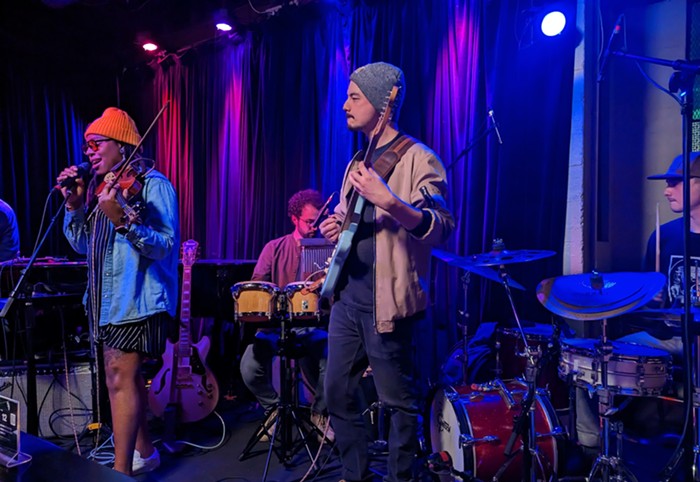Loving J Dilla in the '90s was an uphill battle. Before the super-producer adopted his new moniker he was known as Jay Dee, and expressing love for his work always garnered the same reaction: "Really, you like Jermaine Dupri? Huh?" And that reaction made sense. Dilla broke onto the scene with his work on Common's Like Water for Chocolate and his Jaylib collaboration with indie favorite Madlib, but predating both of those projects, he was relatively obscure, known only for his work in the Ummah (featuring Q-Tip and Ali Shaheed Muhammad) and his neo-soul hiphop outfit, Slum Village. Slum's first major label album, Fantastic, Vol. 2, helped usher in the sound that would dominate underground hiphop for the first part of this decade, and now, lacking Dilla (after his departure from the group and his untimely death in 2006), they are left without their star player, trying to remain relevant in an ever-changing hiphop scene.
What made Slum Village so exciting when they first came out was their dichotomous nature. The beats were dusty, crackly, smooth, and soulful, all infused with eerily romantic undertones. But lyrically, well, they stuck closer to hiphop's mainstream, rapping about getting money, getting girls, and getting through the tough Detroit street life, which at the time was relatively unheard of in the underground. If your sound even remotely flirted with commercialism, then the underground community would be quick to turn its back on you. Yet somehow Slum Village hit a nerve, and shortly thereafter many other acts followed suit, not shying away from radio-rap content, coupled with underground friendly beats.
Nowadays, Slum Village seems outdated. Forever known as the group that launched Dilla's career, the loss of their chief producer left them a mere copy of themselves—identical, yes, but a little less sharp than the original. They've stuck closely with their neo-soul formula, which after eight years doesn't sound as refreshing as it did when it first hit the scene. Functioning more as a tribute to Dilla's talent than as their own relevant force, Slum Village might need to stop relying on the past to push them through to the future, if they ever hope to regain any of their early successes.


















